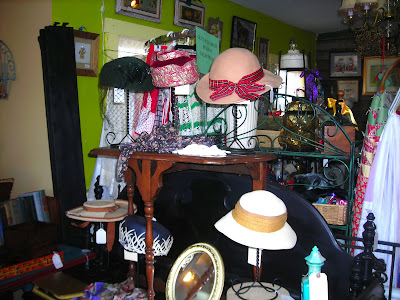Many a bride, the experts say, hurries to purchase her wedding gown as soon as she becomes engaged. I have to admit that when my daughter announced her plans to marry, the first thing we both wanted to do was to go dress shopping. On the very coldest day of January 2008, we drove more than 100 miles round trip to attend a bridal sale, and found just the gown she wanted. She looked gorgeous in it, and I’m confident that we made the right decision.
In retrospect, however, I would advise taking the gown selection process a tad more slowly than we did. Ladies—this
is the most expensive dress you will ever buy. And, unless you break into the movies or run for vice president, it is likely that more people will see you in your wedding gown than in any other garment you will ever own. So it’s worth while to take a deep breath, exhale, and really enjoy locating the perfect dress.
Wedding dresses are Big Business in the United States. American women spend nearly $1 billion annually on their wedding gowns, and another $400 million on bridesmaids’ gowns. There are more than 200 bridal design companies in the United States, but the industry is dominated by several “full service” bridal shops. David’s Bridal is the leader among the behemoths—it caters to more than two-thirds of all brides. David’s Bridal really wants to get you in the door, and promotes itself largely on convenience: If your bridal party is spread out across the country, there is likely a David’s Bridal shop somewhere in the neighborhood of each of your attendants, so getting the same dress for all your maids and matrons is logistically simplified. The company also maintains a lively Web site, that lets your fingers do a lot of the walking.
But before you go to David’s or any other salon, for that matter, take the time to imagine the gown of your dreams.
The Perfect Wedding Dress by Philip Delamore and
Weddings by Martha Stewart are beautifully written and illustrated books with lovely details on the history of gowns and other nuptial attire, and wonderful places to begin your search. Let your mind and eyes take in all the possibilities: Shall it be beaded satin, ruffled taffeta, or silk shantung that, transformed by the designer’s vision, expresses the feminine grace and beauty you will embody as you walk down the aisle? Consider all the options: Do you want to design your own wedding dress and commission it from a seamstress? Eleven percent of brides do. Is there a beautiful vintage gown in your family? Two percent of brides chose to wear a family heirloom gown. Another particularly talented 2 percent make their own!
On the practical side, keep these pointers in mind:
· You will know when you try on the gown of your dreams—it will seem perfect the minute you look in the mirror. Don’t however, try on any gowns without tags; you shouldn’t buy one of these, as it has no “documentation,” so why even try it in the first place?
· You probably don’t need the fancy undergarments—slips, strapless bras, garters, and other accoutrements—that many retailers will press upon you at the time you select your dress. These are high-profit items for all bridal shops and not worth the extra expense.
· Budget for all the line items associated with your gown, including dress and alterations, veil, shoes and hose, jewelry, accessories, and cleaning and preservation. Your veil or veils may cost nearly as much as your gown if you buy it (them) on impulse from a high-end salon. A beautiful veil is also one of the easiest items to make or borrow.
· Before visiting any bridal shop, small, medium, or gargantuan (such as David’s) check by telephone on the shop’s policies regarding refunds for deposits; damaged merchandise (what they will do if your gown is delivered with snags or spots a week before the wedding?); discontinued styles (several of my daughter’s maids almost ended up without dresses, as the style and color of the gowns selected was extremely popular and the manufacturer ran out of cloth); possible “browsing fees”; the costs of gown alterations (can they give you an estimate in advance, or do you just have to pay through the nose if the gown doesn’t fit?); sharing of customer information (will you end up on 100 mailing lists for wedding trinket vendors?) and so forth.
· If a salon will not make an appointment for you with a specific person who will work with your wedding party from ordering through alterations and cleaning, consider choosing another one.
· Consider setting a “dummy” wedding date two to four weeks before your actual wedding, and using this as the deadline in all your dealings with salons.
 Le Dejeuner des Canotiers, Auguste Renoir
Le Dejeuner des Canotiers, Auguste Renoir







































